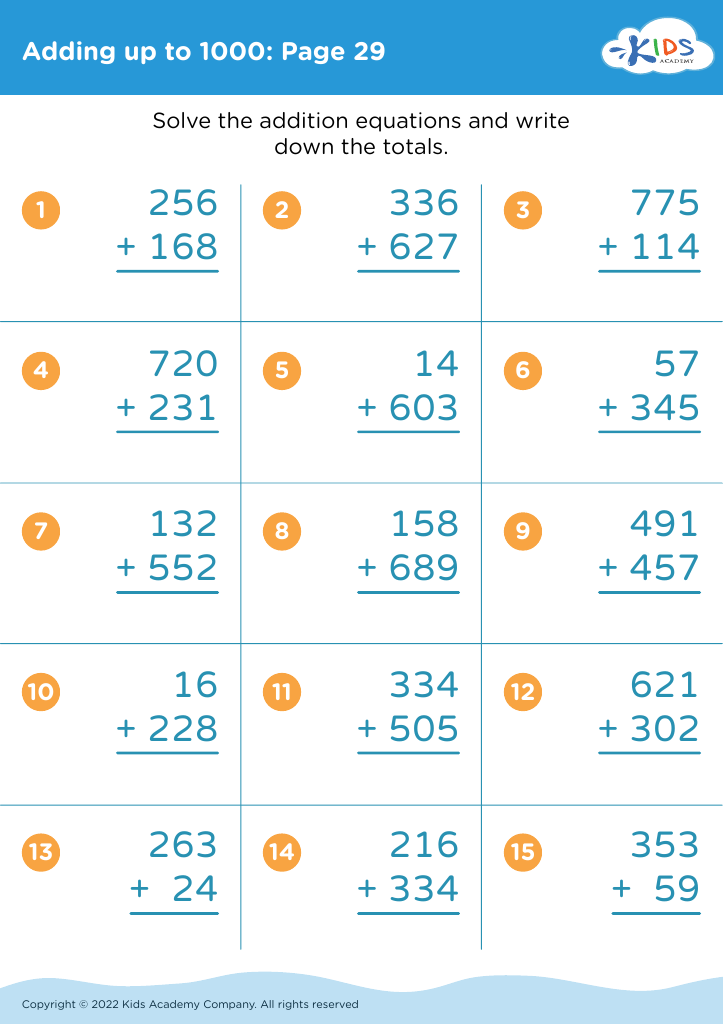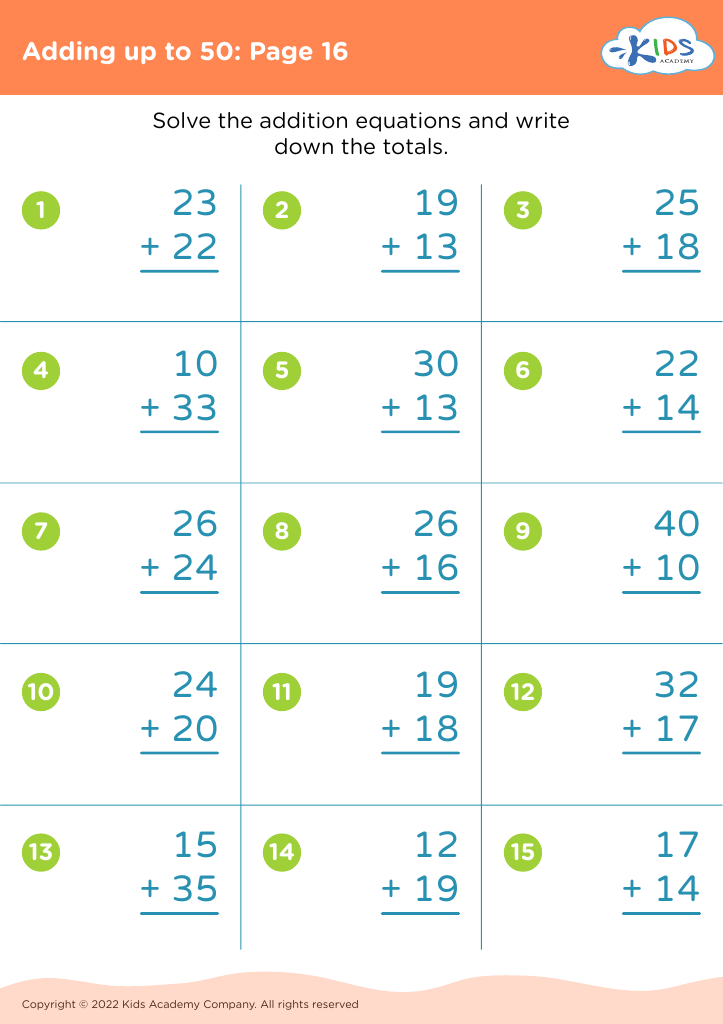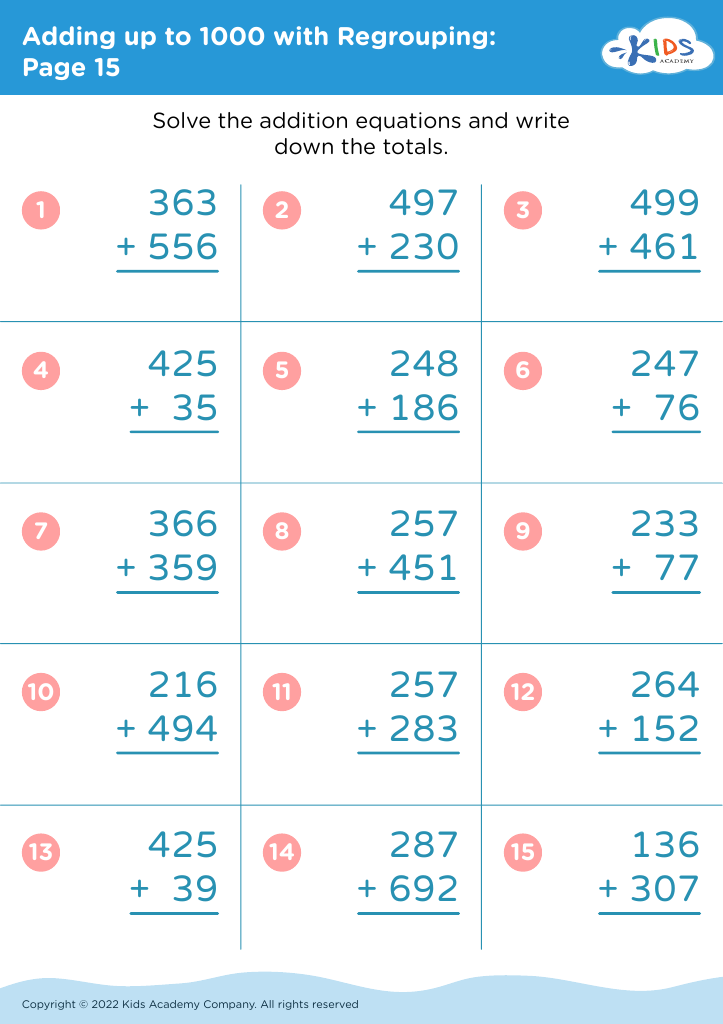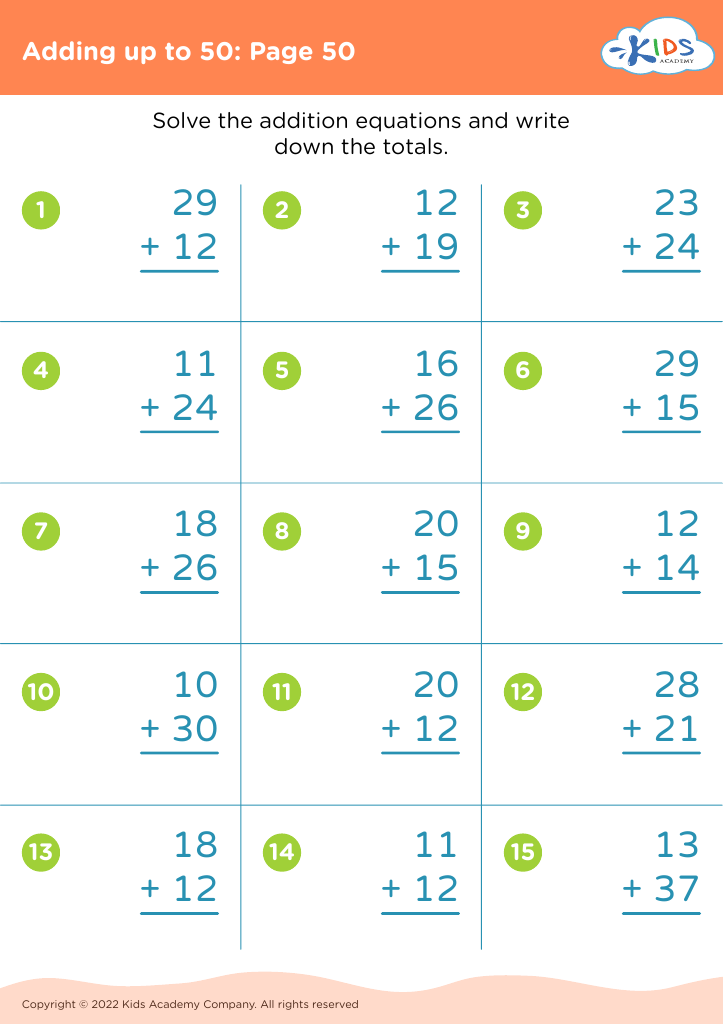Understanding time Addition Worksheets for Ages 7-8
6 filtered results
-
From - To
Enhance your child's math skills with our "Understanding Time Addition Worksheets" designed for ages 7-8! These engaging and interactive worksheets help young learners master addition in the context of time. Featuring fun, relatable scenarios and vibrant illustrations, they encourage children to practice reading clocks, calculating durations, and solving real-life time problems. Our carefully crafted exercises build confidence as they help kids grasp essential concepts while fostering a love for learning. Ideal for home or classroom use, these worksheets ensure your child develops proficiency in both addition and time, preparing them for future success in math. Start your time math journey today!
Understanding time and the concept of time addition is crucial for children aged 7-8 as it serves as a foundational skill that impacts various aspects of their learning and daily lives. First, mastering time helps improve students' organizational skills; they learn to manage their schedules, complete assignments on time, and prioritize daily activities. This skill fosters independence, as children become more aware of how to allocate their time effectively.
Additionally, understanding time addition aids in the development of critical math skills. When children learn to add and subtract time, they enhance their comprehension of basic arithmetic while applying it to real-world scenarios. For example, grasping how to calculate time spent on activities prepares them for more advanced math concepts and daily situations like planning events or determining travel durations.
Moreover, time management is a vital life skill that extends beyond academics. It supports social interactions, promotes punctuality, and cultivates a sense of responsibility. As children navigate group projects, playdates, or family outings, they learn to collaborate and communicate while being mindful of schedules.
In summary, fostering time addition skills in young students not only reinforces essential math abilities but also equips them for future academic and personal success, making it a priority for both parents and teachers.



























